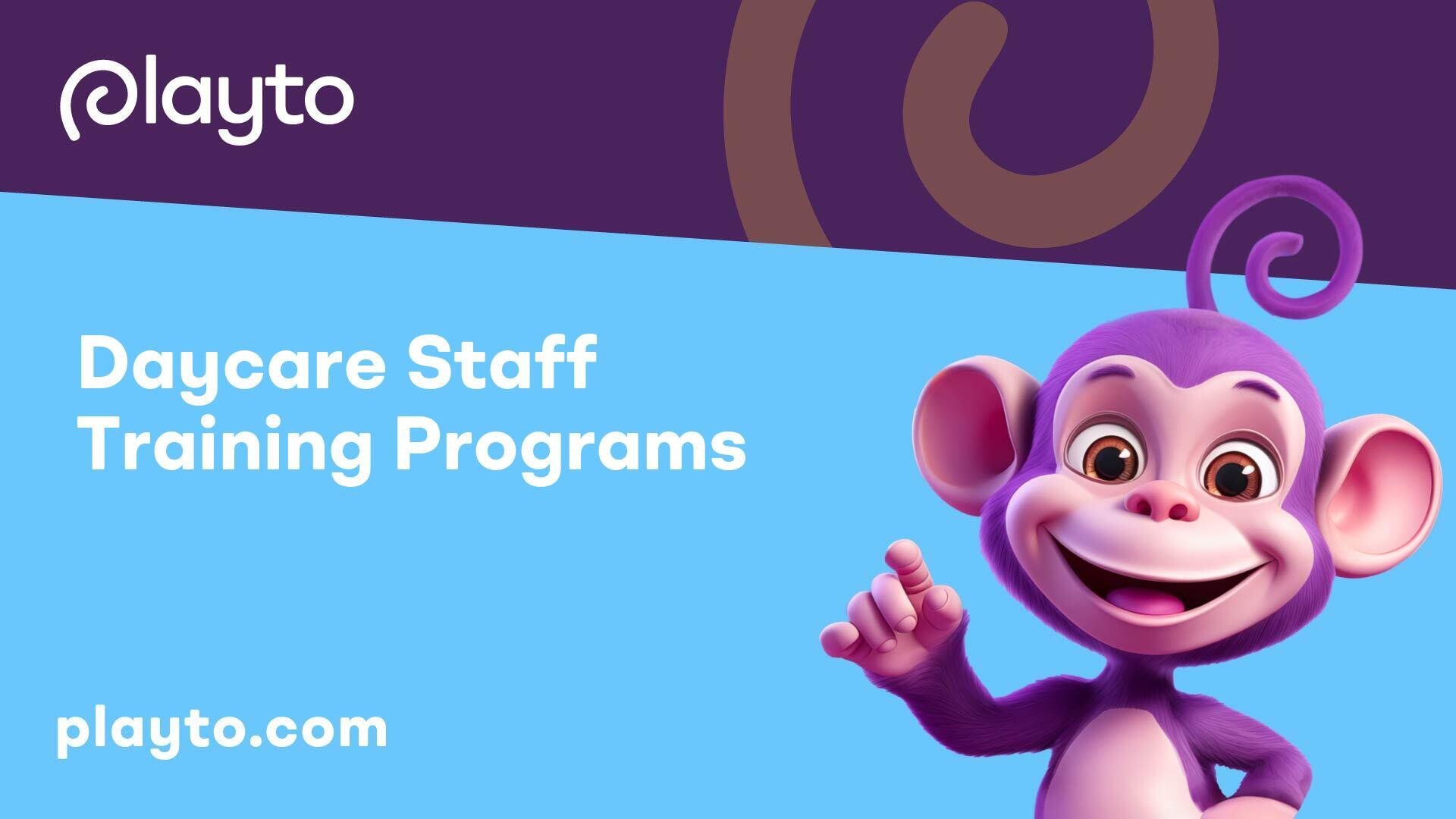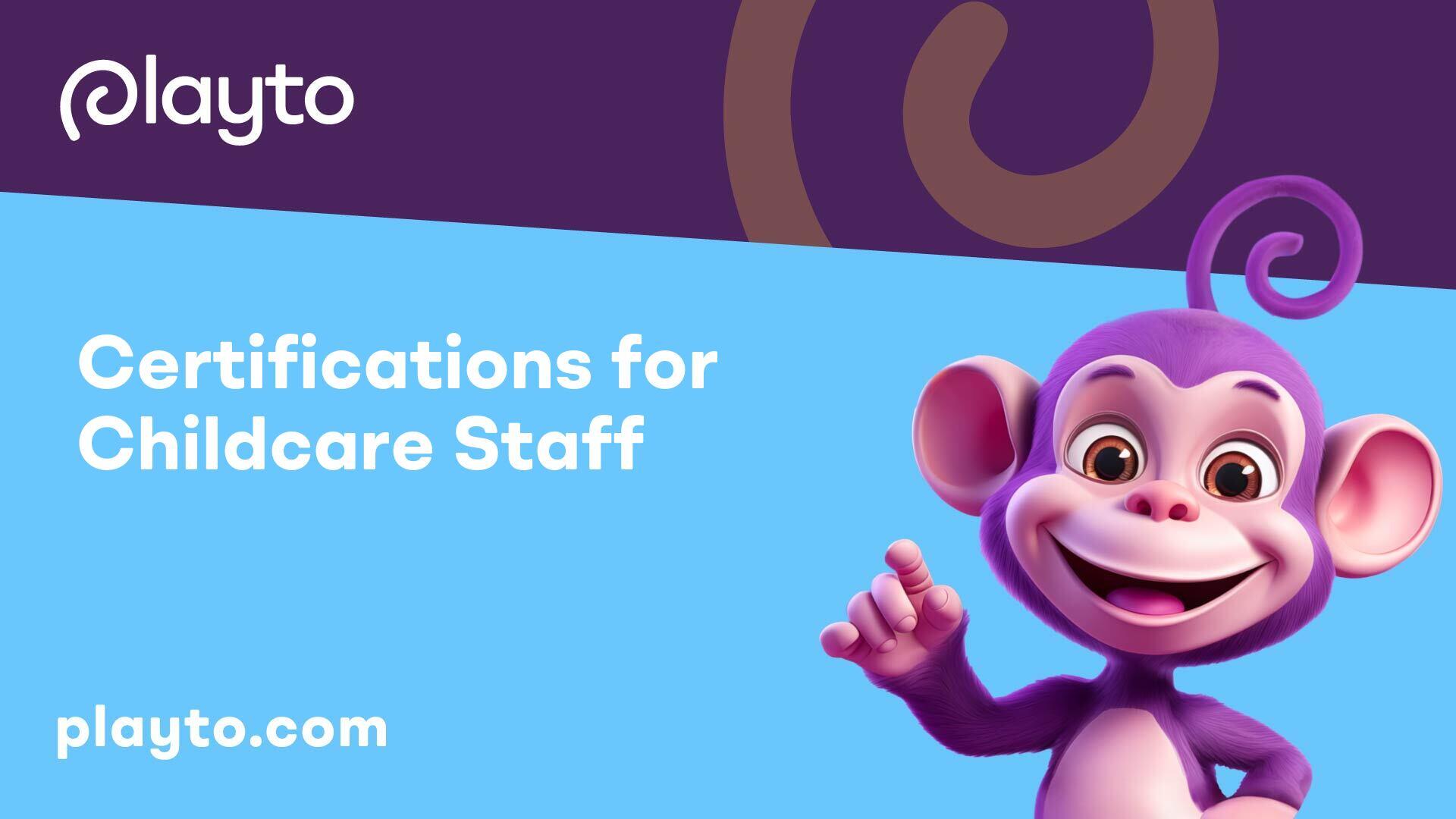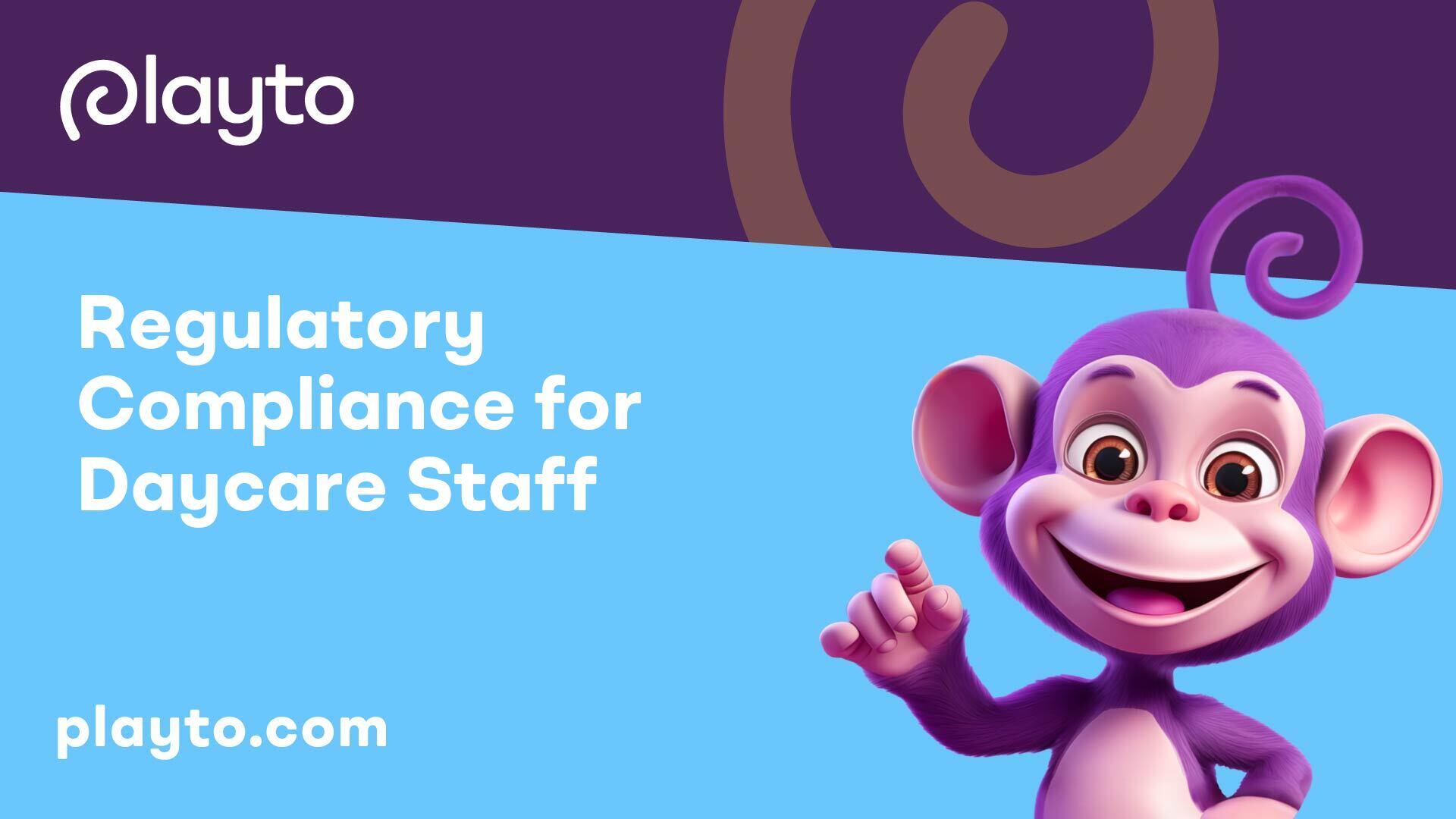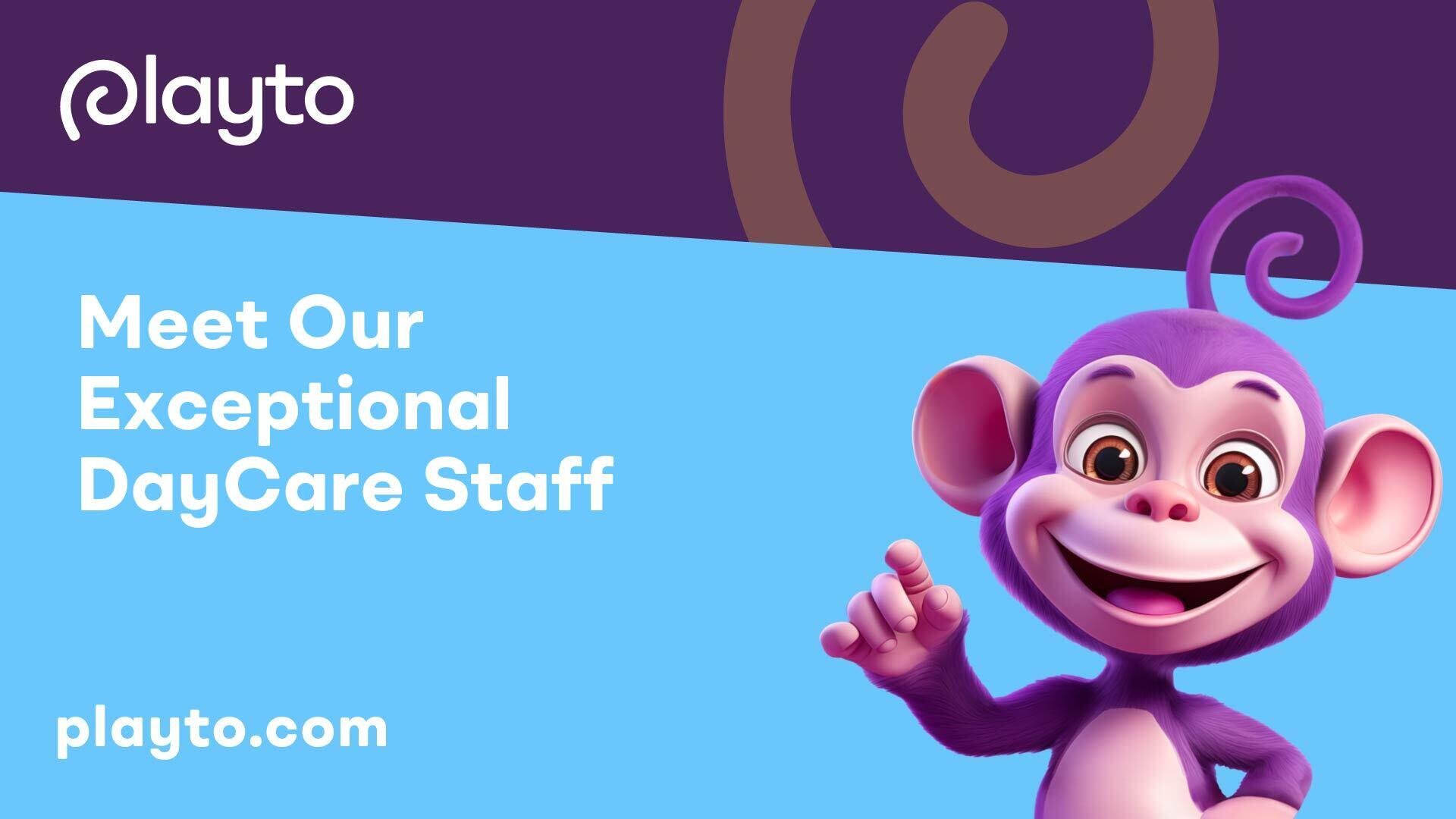
Daycare Staff Training Programs
When it comes to ensuring the quality of childcare services, training programs play a crucial role in enhancing the skills and knowledge of daycare staff. Let's delve into the importance of these training programs and the benefits they bring to professional development.
Importance of Training Programs
Childcare training programs are vital for staff to continually improve their skills, enhance their teaching methodologies, and maintain a safe environment for children. These programs enable educators to stay up-to-date with the latest research in child development and early childhood education practices. By participating in ongoing training, daycare staff can provide children with the most relevant and engaging educational experiences possible [1].
Federal and state regulations mandate that childcare staff undergo health and safety training on topics such as CPR, emergency preparedness, nutrition, and child development. By completing these training programs, daycare staff can ensure the safety of the children under their care and comply with the necessary regulatory requirements. Continuous evaluation and professional development are essential for educators to enhance their skills, expand their professional knowledge, advance their careers, and create optimal learning environments for children [1].
Benefits of Professional Development
Professional development through training programs not only benefits the childcare staff but also significantly impacts the quality of care provided to children. By honing their skills and knowledge, daycare staff can become better educators, fostering a nurturing and stimulating environment for children to thrive. Ongoing training allows staff to learn about the latest advances in child development research, educational practices, and safety protocols.
Moreover, consistent professional development enables childcare workers to adapt to changing needs and requirements within the industry. By staying informed and upskilling through training programs, daycare staff can offer a higher standard of care, tailored to meet the evolving needs of the children in their care. It also provides them with the tools to handle diverse situations effectively and promote a positive learning experience for all children involved.
The significance of daycare staff training programs cannot be overstated. Through continuous learning and improvement, childcare professionals can create a safe, stimulating, and enriching environment that nurtures the growth and development of every child in their care. This dedication to ongoing training helps ensure that daycare centers meet regulatory standards and provide high-quality care that positively impacts the lives of children and families.

Certifications for Childcare Staff
When it comes to providing quality childcare services, having well-trained and certified staff is paramount. Childcare staff can enhance their skills and expertise in early childhood education by obtaining certifications such as the Child Development Associate (CDA), Certified Childcare Professional (CCP), and Online National Administrator Credential (NAC).
Child Development Associate (CDA)
The Child Development Associate (CDA) certification is a nationally recognized credential that demonstrates a caregiver's competence in working with young children. This certification focuses on the areas of child development, creating a safe and nurturing environment, and promoting the social and emotional development of children. Childcare professionals who hold a CDA have undergone formal training and assessment to ensure they meet the highest standards in early childhood education.
Certified Childcare Professional (CCP)
Certified Childcare Professional (CCP) certification is designed for individuals who have completed specialized training in childcare practices and child development. This certification equips childcare professionals with the knowledge and skills necessary to provide high-quality care to children in various settings. By earning the CCP credential, childcare staff demonstrate their commitment to continuous learning and professional growth in the field of early childhood education.
Online National Administrator Credential (NAC)
The Online National Administrator Credential (NAC) is specifically tailored for childcare administrators and directors. This certification focuses on leadership, management, and administrative skills required to oversee childcare centers effectively. Administrators who hold the NAC credential have demonstrated their proficiency in areas such as staff management, financial planning, regulatory compliance, and program development.
Certifications play a significant role in ensuring that childcare staff are well-prepared to meet the diverse needs of young children in daycare settings. By pursuing these certifications, childcare professionals can stay current with best practices in early childhood education and provide a nurturing and enriching environment for the children under their care.
For more information on supporting early childhood development and education, explore our articles on supporting language development in daycare, packing the perfect daycare lunch, preparing kids for school transitions, and the importance of sensory play.

Regulatory Compliance for Daycare Staff
Adhering to regulatory standards in daycare centers is crucial to ensuring the safety and well-being of children in their care. Two key aspects of regulatory compliance for daycare staff are health and safety training and maintaining appropriate staffing ratios and group sizes.
Health and Safety Training
Federal and state regulations mandate that child care staff undergo comprehensive health and safety training. This training covers crucial topics like CPR, nutrition, emergency preparedness, and child development to ensure the safety of children in daycare centers [1].
Moreover, specific training may be required annually, such as safe sleep practices for infants, to keep child care providers up to date with best practices and regulations. It is essential for daycare centers to have written policies outlining procedures for child arrivals and departures, release of children to authorized individuals, locating absent children, and preparedness for emergencies or adverse weather conditions [3].
To maintain compliance, child care staff must also refrain from being under the influence of any substance that impairs their ability to care for children effectively [3]. Keeping up with these health and safety protocols ensures a secure environment for children and peace of mind for parents.
Staffing Ratios and Group Sizes
Maintaining appropriate staffing ratios and group sizes is another critical aspect of regulatory compliance in daycare centers. These ratios dictate the number of children that each staff member is responsible for supervising at any given time.
Ensuring proper staffing ratios allows for individualized attention and care for each child. It also contributes to better oversight of children's safety and well-being while promoting a conducive learning environment. Centers that adhere to these ratios provide a more personalized and enriching experience for children.
Additionally, regulating group sizes helps in managing interactions between children and ensuring a harmonious and safe environment. By adhering to prescribed group sizes, daycare centers can mitigate risks, promote effective supervision, and enhance the overall quality of care provided to children.
By prioritizing health and safety training for staff and maintaining appropriate staffing ratios and group sizes, daycare centers uphold regulatory standards and create a nurturing and secure environment for children under their care. These measures underscore the commitment of daycare staff to excellence in childcare and the well-being of the children they serve.
Professional Development Days for Childcare Staff
Professional development days play a crucial role in the continuous learning and growth of early childhood educators in the daycare setting. These full-day events, held once or twice a year, provide opportunities for staff members to acquire new skills, refine existing ones, promote collaboration, and enhance team-building among all members of a childcare program’s staff.
Event Purpose and Goals
The primary purpose of professional development days for childcare staff, as outlined by Brightwheel, is to foster a culture of ongoing learning and improvement within the daycare environment. By engaging in targeted training sessions and workshops, staff members can stay abreast of the latest trends, best practices, and research in early childhood education. These events also serve to boost morale, motivation, and job satisfaction among employees, ultimately leading to a more enriching and supportive working environment.
Professional development days are designed to address specific goals, such as enhancing teaching methods, improving child engagement, promoting effective classroom management, integrating technology in the curriculum, and nurturing social-emotional development in children. By aligning the content and activities with these goals, daycare staff can enhance their skills and contribute to the overall quality of care provided to children.
Tailoring Content to Staff Needs
Before organizing a professional development day, it is essential to assess the needs and interests of the staff members. Conducting surveys or questionnaires can provide valuable insights into specific areas for growth, interests, and skill development opportunities. By gathering feedback from the team, daycare administrators can tailor the content of the event to address the most pertinent issues, such as classroom management techniques, technology integration, or social-emotional development strategies.
By ensuring that the training sessions are relevant and engaging for the staff, daycare centers can maximize the impact of professional development days and create a more meaningful learning experience for everyone involved. To learn more about how to support language development in daycare, check out our article on supporting language development in daycare.
Incorporating staff input into the training content not only enhances the relevance of the topics covered but also boosts staff engagement and participation. By creating a collaborative and personalized learning experience, daycare staff are more likely to apply the newly acquired knowledge and skills in their daily interactions with children, parents, and colleagues.
Stay tuned for insights into bringing in outside experts and team-building activities to further enhance professional development days for childcare staff.
Enhancing Professional Development Days
To elevate the quality of professional development days for childcare staff, centers often incorporate strategies such as bringing in outside experts and organizing team-building activities. These elements contribute to a well-rounded and impactful learning experience for the staff, fostering growth and cohesion within the team.
Bringing in Outside Experts
One effective way to enrich professional development days is by inviting external professionals and experts to share their knowledge and insights with the childcare staff. These experts can include motivational speakers, educators, or facilitators skilled in various relevant areas such as classroom management, teaching methods, communication skills, stress management, and more.
By bringing in outside experts, childcare staff can benefit from fresh perspectives, innovative strategies, and specialized knowledge that may not be readily available internally. This exposure to diverse expertise can inspire staff members, provide valuable learning opportunities, and enhance their overall professional development.
Team-Building Activities
Another essential component of enhancing professional development days is the integration of team-building activities throughout the event. Team-building activities are crucial for promoting bonding among staff members, fostering collaboration, and maintaining a positive work environment [4].
These activities can be strategically incorporated into the schedule, allowing staff members to engage in cooperative tasks, problem-solving exercises, or communication challenges. Team-building activities not only create a sense of unity and camaraderie among the team but also offer opportunities for personal growth and skill development.
To ensure the success of team-building activities, it's essential to tailor them to the specific needs and preferences of the childcare staff. Surveys or questionnaires can be utilized to assess staff interests and areas for growth before the professional development day, ensuring that the chosen activities are relevant, engaging, and aligned with the team's goals.
Incorporating both outside expertise and team-building activities into professional development days creates a comprehensive and enriching experience for childcare staff. By promoting continuous learning, collaboration, and a supportive work culture, centers can empower their staff to excel in providing quality care and education to the children under their supervision.
Remote Staff Engagement
In today's evolving landscape, engaging remote staff in professional development is essential to ensure their continued growth and connection to the daycare community. This section explores the virtual components and support mechanisms put in place for remote participants during professional development days.
Virtual Components
As daycare centers adapt to remote work setups, incorporating virtual components into professional development days becomes crucial. Platforms like Zoom and Google Meet offer video conferencing capabilities that allow remote staff to participate in training sessions, workshops, and discussions alongside on-site team members [4]. Such virtual interactions enable remote staff to engage with speakers, ask questions, and collaborate with their peers, fostering a sense of inclusion and unity within the daycare staff.
Furthermore, utilizing online training modules and resources can enhance the learning experience for remote participants. These virtual components provide flexibility in accessing educational materials and can cater to different learning styles, ensuring that all staff members, regardless of their physical location, have equal opportunities for professional development.
Support for Remote Participants
To create a supportive environment for remote participants during professional development days, it is essential to offer tailored assistance and guidance. One way to achieve this is through virtual team-building activities that promote interaction and relationship-building among remote and on-site staff. These activities can include virtual icebreakers, collaborative projects, and group discussions, fostering camaraderie and a sense of belonging among all team members.
Moreover, providing remote staff with dedicated support resources, such as access to online mentors, discussion forums, and virtual help desks, can address any challenges or concerns they may face during virtual professional development sessions. This personalized support not only enhances the remote staff's learning experience but also demonstrates the daycare center's commitment to their professional growth and well-being.
Through the integration of virtual components and robust support systems, daycare centers can effectively engage remote staff in professional development activities, ensuring that all team members, regardless of their location, have the opportunity to learn, grow, and thrive within the daycare community.
Childcare Worker Statistics
Exploring the statistical landscape of childcare workers provides valuable insights into their wages, employment outlook, educational requirements, and potential advancement paths within the field.
Wages and Employment Outlook
Understanding the financial aspects of a career in childcare is crucial for both aspiring and current professionals. As of May 2023, the median hourly wage for childcare workers stood at $14.60 [2]. This figure serves as a baseline for assessing compensation in the industry and varies depending on factors such as qualifications, experience, and location.
While the employment of childcare workers is projected to decline slightly by 1 percent from 2023 to 2033, there remains a steady demand for these professionals. Approximately 162,500 openings for childcare workers are expected to emerge each year over the next decade, indicating ongoing opportunities for individuals looking to pursue a career in childcare [2].
Educational Requirements and Advancement Paths
The educational journey for childcare workers can vary significantly across different states in the U.S. Regulatory practices dictate the educational prerequisites for childcare workers, with some states mandating a high school diploma or equivalent for entry-level positions, while others have more flexible requirements [2].
For those aspiring to advance in the childcare field, opportunities for growth exist. With a few years of experience and a bachelor's degree, childcare workers can progress to roles such as preschool or childcare center director. This advancement path underscores the importance of continuous learning and professional development to reach higher levels of responsibility and impact within the childcare sector.
To support the career progression of childcare workers, ongoing training is often necessary. These training programs cover a range of essential topics, including safe sleep practices for infants. State regulations may stipulate annual training hour requirements to ensure that childcare workers stay abreast of best practices and maintain high standards of care [2].
By comprehensively understanding the wages, employment outlook, educational prerequisites, and potential advancement pathways within the childcare profession, individuals can make informed decisions about their career trajectories and tailor their professional development journeys to achieve their goals in this rewarding field.
Administrative Requirements for Daycare Centers
Ensuring the smooth operation and regulatory compliance of a daycare center involves establishing clear administrative requirements. Two key aspects of these requirements are staffing policies and administrator qualifications.
Staffing Policies
According to the Ohio Revised Code, a child care center must have a minimum of two responsible adults present when seven or more children are under their care. It is essential for daycare centers to organize children into small groups, ensuring continuity of care and supervision. A critical guideline is that no child should be left alone or unsupervised at any time during their stay at the center.
The maximum number of children that can be under the care of a single child care staff member, as well as group size requirements, are determined based on the age group of the children attending the facility. These ratios are enforced to uphold the safety and personalized attention each child receives at the daycare center. Compliance with these ratios is crucial, especially when combining different age groups within the facility.
Special considerations must be taken into account during naptime for toddlers or preschool-age children. The maximum number of children per staff member during napping hours may increase to twice the usual ratio established for awake hours. However, specific conditions, such as the presence of one staff member per group, adequate on-site staffing, completion of naptime preparations, and children resting or sleeping on designated cots, must be met. This increased ratio for napping hours is limited to a maximum of two hours within a twenty-four-hour period.
Daycare centers are required to have written policies detailing the arrival and departure of children, the release of children to individuals other than their parents or guardians, procedures for locating an absent child, and plans for operational continuity during inclement weather or emergencies. These policies are put in place to ensure the safety and well-being of all children under the center's care.
Administrator Qualifications
The administrator of a daycare center plays a pivotal role in overseeing the daily operations and upholding regulatory standards. According to the Ohio Department of Job and Family Services, the administrator must meet specific qualifications to fulfill their responsibilities effectively. These qualifications may include:
- A minimum level of relevant education and training in child development and early childhood education.
- Knowledge and experience in managing a childcare facility, including staff supervision and compliance with regulations.
- Strong leadership and communication skills to interact effectively with staff, parents, and regulatory agencies.
- Understanding of health and safety protocols, emergency procedures, and child welfare regulations.
By ensuring that the daycare center's administrator meets these qualifications, the center can maintain a high standard of care, compliance, and professionalism in all aspects of its operations. Research has shown that qualified and competent administrators contribute significantly to the overall quality of care provided at daycare centers, fostering a safe and nurturing environment for children.
In summary, adherence to established staffing policies and the appointment of qualified administrators are essential components of administrative requirements for daycare centers. By upholding these standards, daycare centers can promote a safe, enriching, and structured environment that prioritizes the well-being and development of every child under their care.
References
[1]: https://mybrightwheel.com/blog/the-importance-of-childcare-staff-training-for-educators
[2]: https://www.bls.gov/ooh/personal-care-and-service/childcare-workers.htm
[3]: https://emanuals.jfs.ohio.gov/history/
[4]: https://mybrightwheel.com/blog/professional-development-day-childcare-preschool-staff
